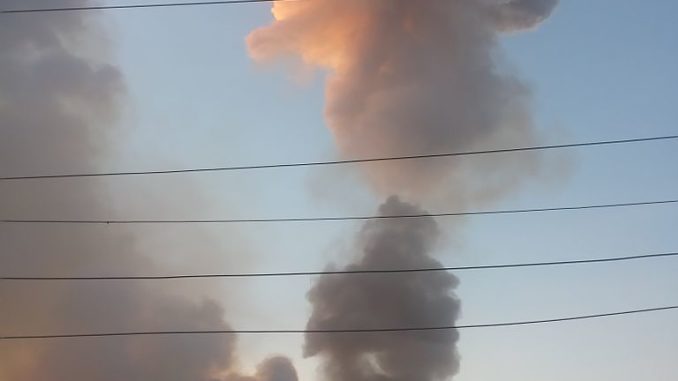
The most influential Iranian general, Qassem Suleimani, was killed early today in an airstrike by the United States. He, a senior Iraqi paramilitary leader Abu Mahdi al-Muhandis, and about two dozen others were targeted by U.S. forces acting at the direct command of the President.
The Defense Department issued a statement on the event, specifying Trump’s decision as the motivating factor:
At the direction of the President, the U.S. military has taken decisive defensive action to protect U.S. personnel abroad by killing Qasem Soleimani, the head of the Islamic Revolutionary Guard Corps-Quds Force, a U.S.-designated Foreign Terrorist Organization.
Suleimani was believed to have been directly responsible for many campaigns against the United States and allied powers in countries throughout the Middle East. While there were some occasions of Iranian interests merging with the United States’ – for example, their actions against the Sunni-oriented ISIS – for the most part Suleimani was a consistent fighter for an oppressive, expansionist Islamist government.
That said, Iran is a significant power in the Middle East with strong ties to influential countries such as China and Russia as well as links to other nations. While some of them are also American enemies, such as North Korea, there are allies who maintain healthy relations with Iran. The EU is among Iran’s largest trading partners, for example, and Japan has a long history of association with the country which has led to Japan’s Prime Minister Shinzo Abe being visited by Iranian leader Rouhani to broker a peace between Iran and the U.S. are recently as a few weeks ago (as reported in the Japan Times).
The airstrikes are widely interpreted as an escalation in the regional conflict between Iran and the United States.
Reactions from around the world, normally fairly quick in response to major events, have been trickling in as world governments and key individuals take the time to assess the situation.
Among the concerns raised have been whether the strikes constituted a targeted assassination of another foreign leader. One of the authorities on such matters for the United Nations has publicly declared it likely (or, more accurately, “lokely”), in a thread where she lays out the criteria for her assessment:
Other issues include the danger faced by troops in the area, who are prime targets for retaliatory strikes by Iran; the restriction of world trade by a blockade of the Straits of Hormuz; the exposure of our troops present in Iraq and nearby countries, and further strain on world alliances for the United States at a time when it is already pursuing a negative image on the international stage.
Iran’s Ayatollah Khamenei has responded with a statement saying “His pure blood was shed by the hands of the cruelest of the mankind on the earth.” and promising that “A vigorous vengeance awaits those whose hands are tainted with his blood.”

1 Trackback / Pingback
Comments are closed.